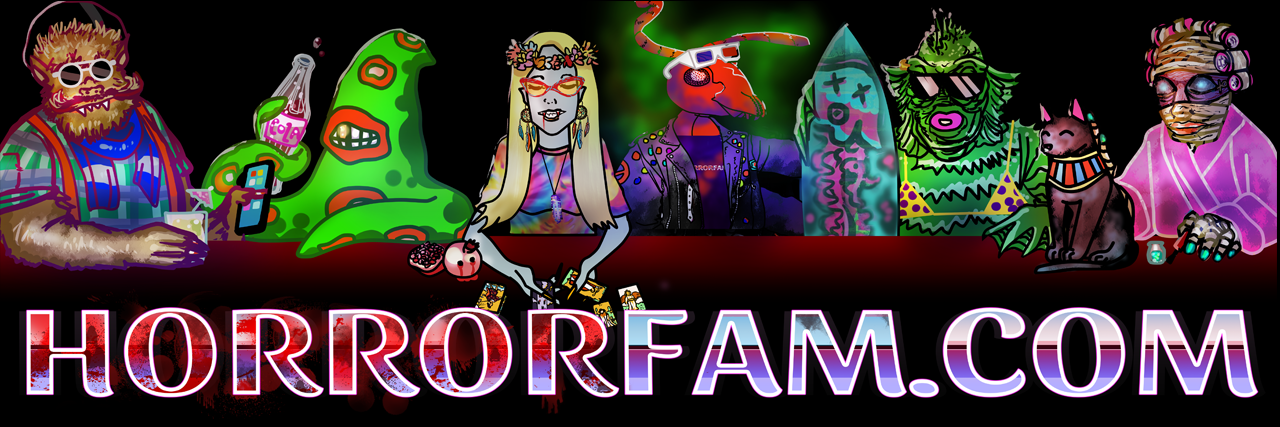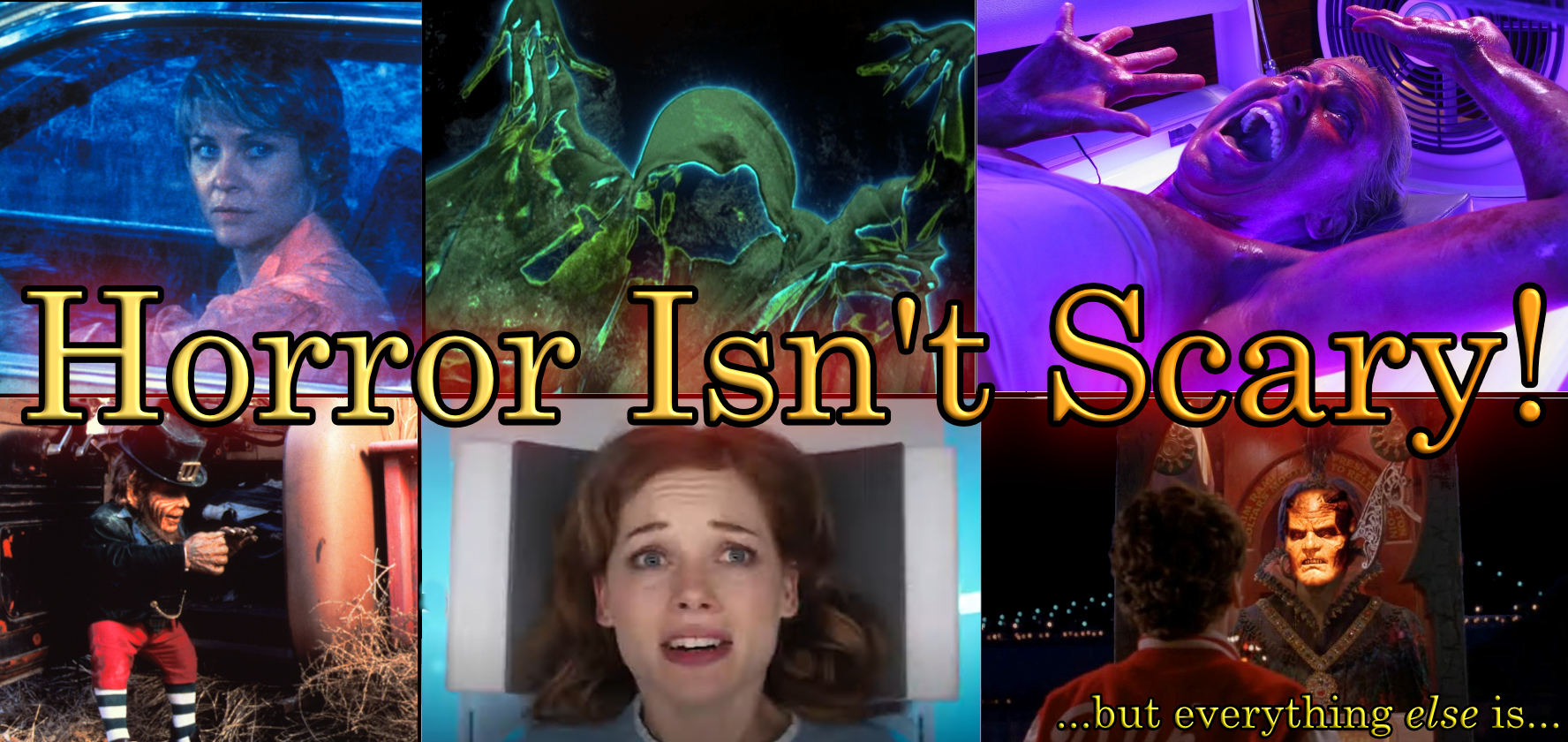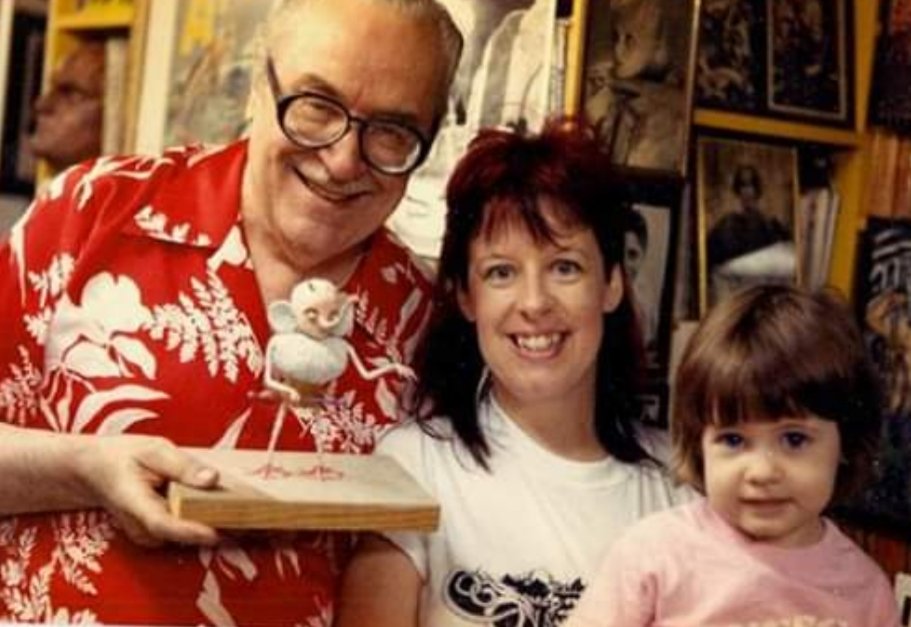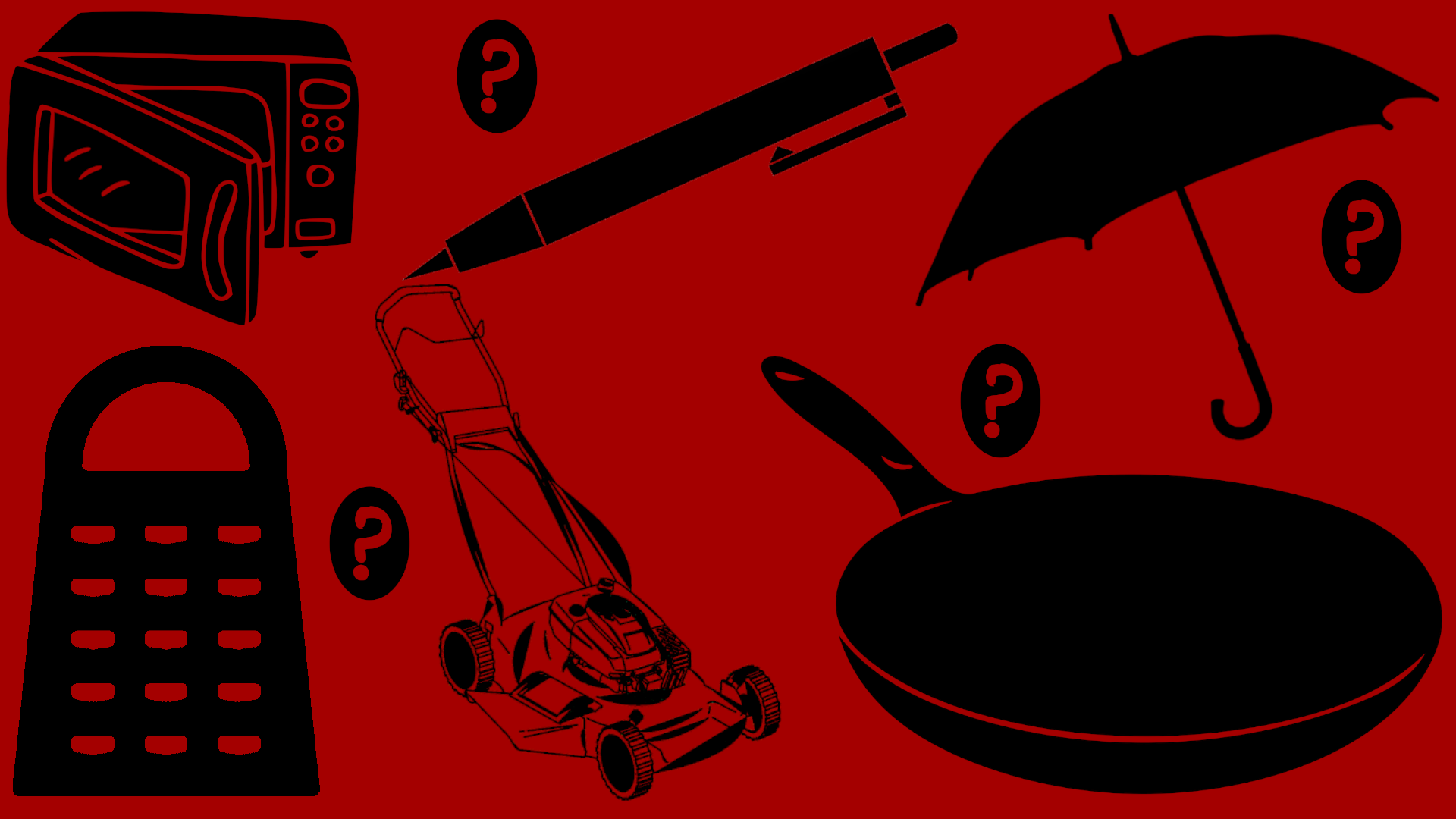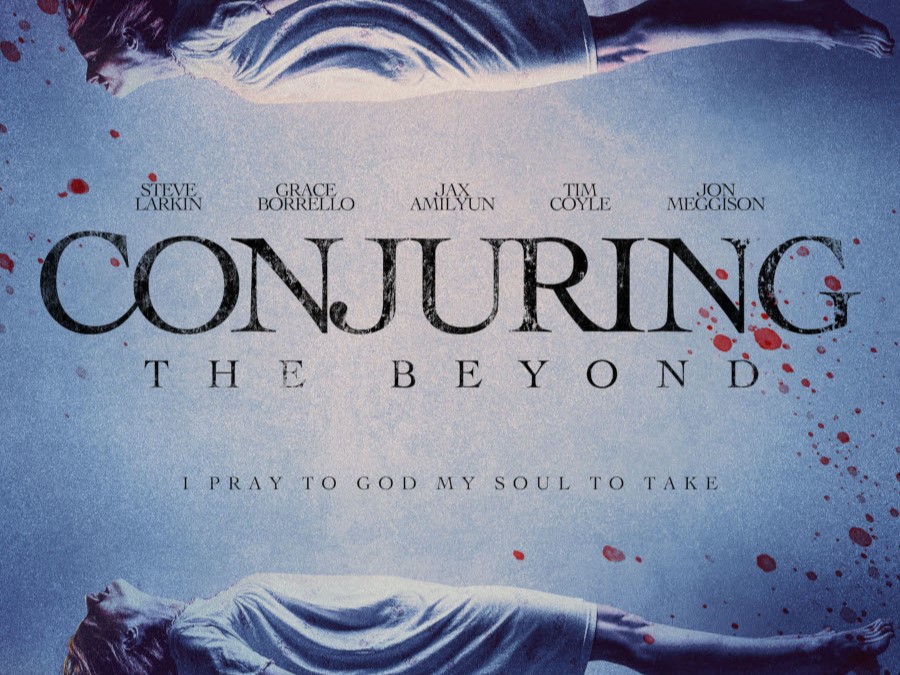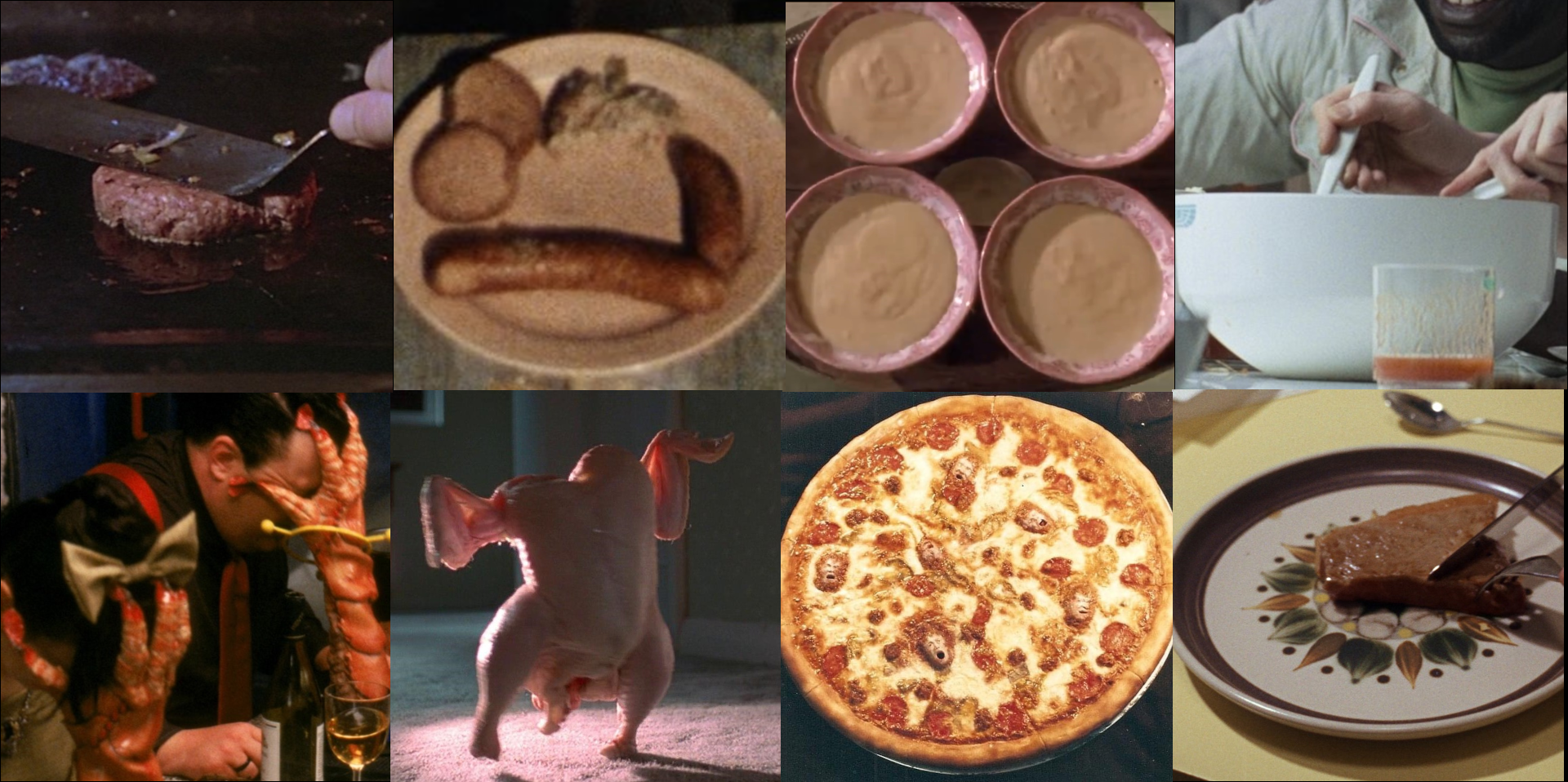I’m a “scaredy-cat” — an “unduly fearful person,” a worrywart, an anxiety-ridden jittery jumpy mess of a human being. And yet I absolutely love horror and am the proud owner/creator of HorrorFam.com! What’s up with that? And why are so many scaredy-cats drawn to a genre meant to terrify?
In my opinion, it’s because horror isn’t scary…
…everything else is.
Horror Wears Many Masks
This truly horrifying film plot was based on a book: A mom and two sons are alone on a farm. Animal attacks are prominent as are looming fears of dehydration and starvation. A beloved family dog turns deadly — rabid — and has to be put down. Both the movie and the book have the same title.
Clearly, I was talking about Cujo:
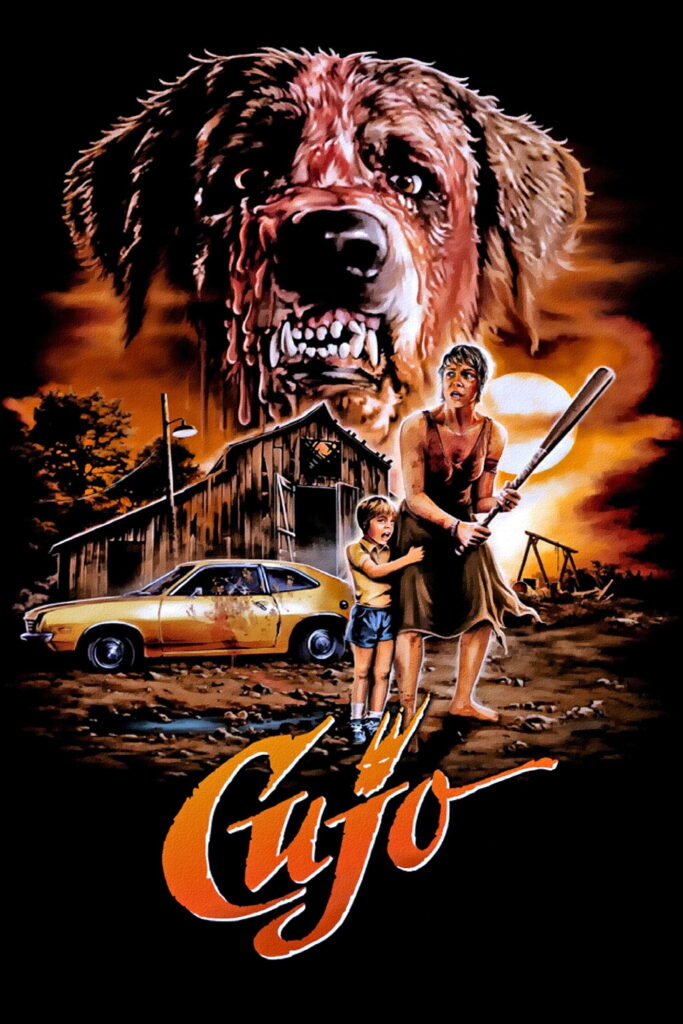
But… wait a sec! Two sons? That doesn’t sound quite right.
That’s because I was actually talking about this movie:
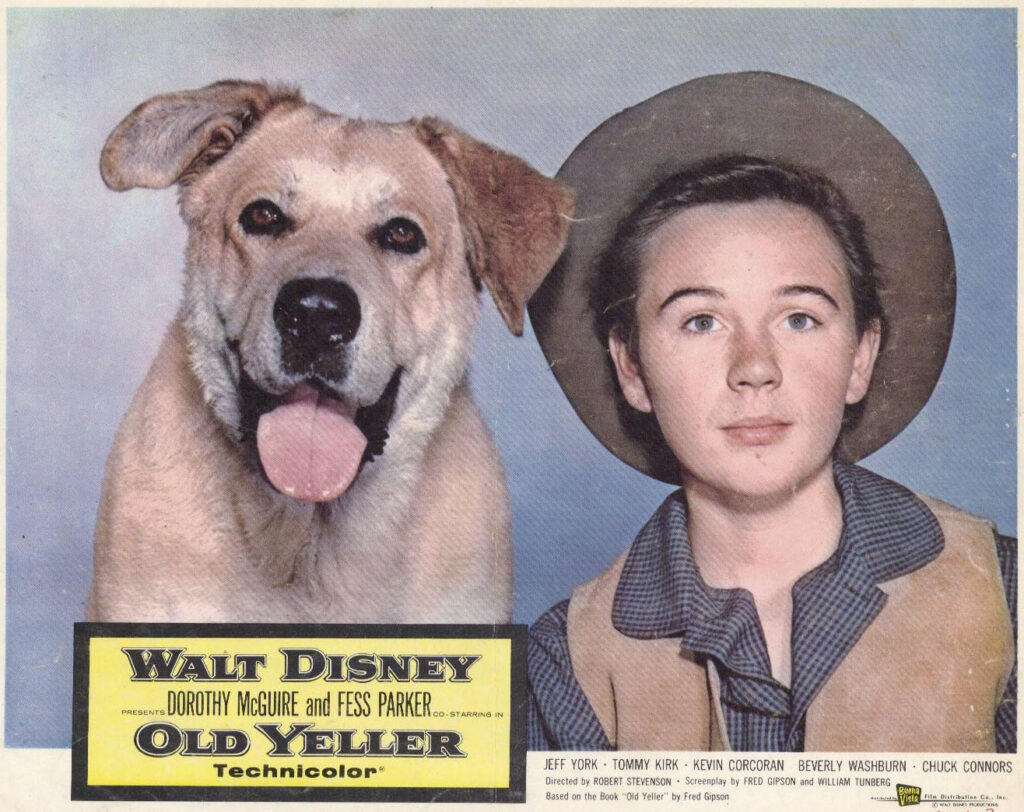
Disney’s 1957 drama Old Yeller, classified as a “family” film, absolutely traumatized a generation of movie-goers. Any Boomers who hadn’t read the book were caught off guard by Old Yeller and scarred for life. How is that not horror?
Every Genre Can Be Horror
Family films, dramas, comedies… So many genres are actually horror-in-disguise.
Everything in 2020 was Horrifying, Including This TV Drama:
I was surprised by how disturbing the pilot episode of Zoey’s Extraordinary Playlist was. I was expecting a light-hearted romp (which, to be fair, it was sometimes; just not in full) and was met with a lot of “whoa.”
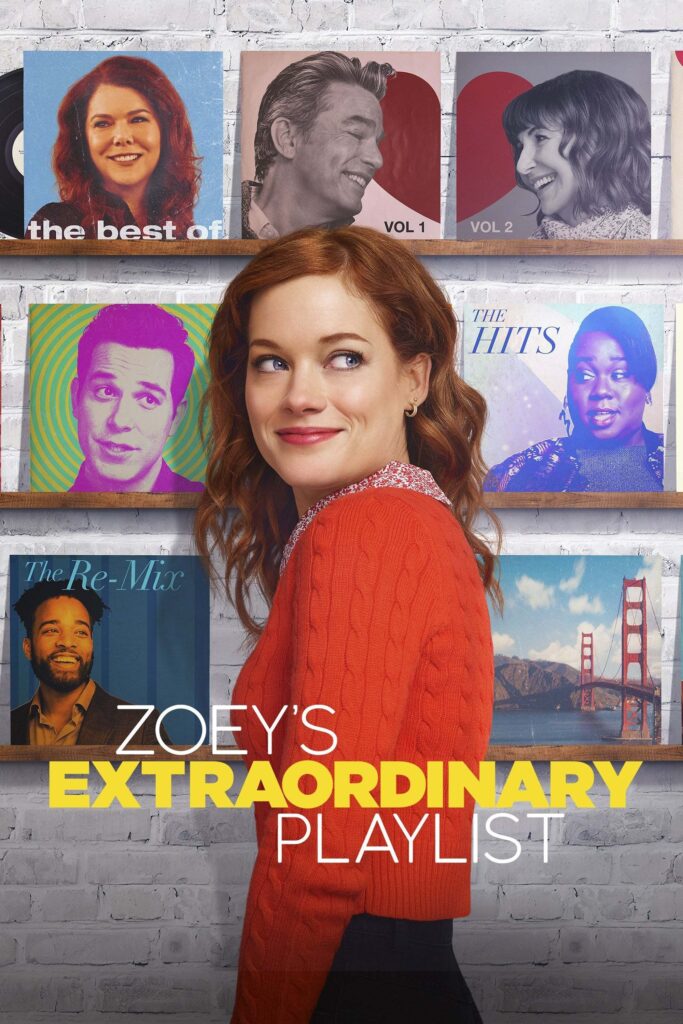
In the bullets below, I’ll list things that happened/plot elements in the pilot episode of this “musical comedy-drama.” If you’ve seen the trailers (I didn’t), none of this is surprising but be aware of minor spoilers:
- A family member dying of a rare neurological disease. The protagonist (Zoey) has similar symptoms, prepping the audience for the lead’s eventual terrifying demise or, at the very least, demonstrating that our heroine is afraid for her life.
- Zoey has to get a brain scan and becomes trapped in the MRI machine when an earthquake hits — which causes the machine to malfunction and give her a mind scramble.
So, in one key scene, we have a hospital (always frightening!), a natural disaster, claustrophobia/”buried” alive, tech-gone-wrong, and any number of other horror tropes/themes. I mean, there isn’t much of a difference between this:
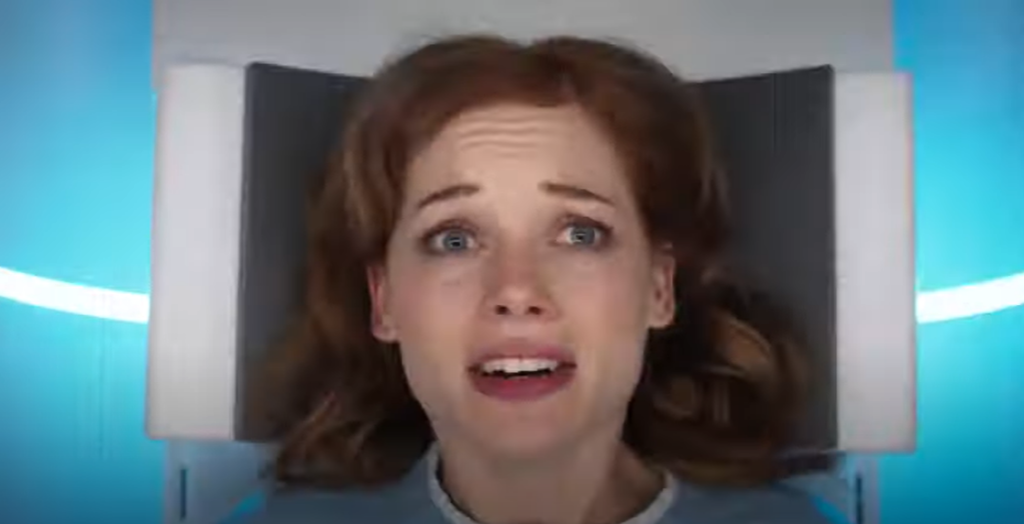
And this:
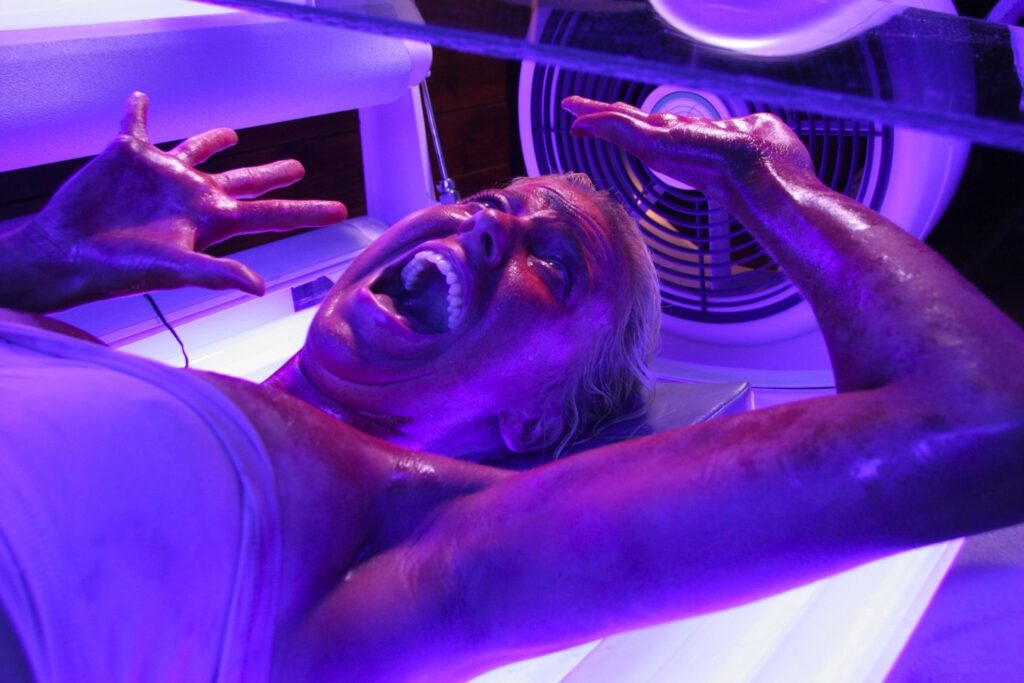
But I digress.
- The MRI malfunction results in lasting brain damage that leaves Zoey in a near-constant state of fear and confusion. Like, more so, I mean. She was already afraid of dying a horrible death before that happened. Anyway, she develops mind-reading powers and walks around like O_O for most of the pilot (and every other episode) because people are scary!
- Speaking of which: Zoey’s newfound mind-reading abilities reveal some dark stuff about the humans around her. For example, she tunes-in to one character’s grief over the loss of his father… and how that’s slowly turning into suicidal ideation of his own.
I know that modern viewers are a bit more hardcore; and that movies and television can get away with a lot more than they used to. But that stuff’s still scary, right? It’s horror? Like… It’s not just me, right? That’s some frightening stuff!!
And it’s not like this is a new phenomenon. Old Yeller was from 1957, remember?
But it’s not just drama films!
This 1988 Fantasy-Comedy Has a Whole Lotta Yikes:
If you haven’t seen the PG-rated Eighties’ comedy Big in a while, you probably just remember Tom Hanks being his usual charming self and that there was a big ol’ piano keyboard at one point. So, as a refresher, here’s the plot of Big:
A 12-year-old boy named Josh makes a wish on a Zoltar fortune-telling machine to be “big” (taller/older/”grown-up”) and his wish his granted the following morning. He wakes up terrified by this major body change and then his own mother threatens Josh with a large kitchen knife and chases him out of his home.
As a homeless pre-teen in an adult’s body, Josh is forced to enter the workforce — he takes on a 9-to-5 job in data entry while living in a below code hostel-esque apartment.
Things eventually improve for Josh financially (thanks to the giant piano keyboard incident), but at the cost of time with his only real friend. He’s also pressured into a “romantic” (sexual) relationship with a 28-year-old woman.
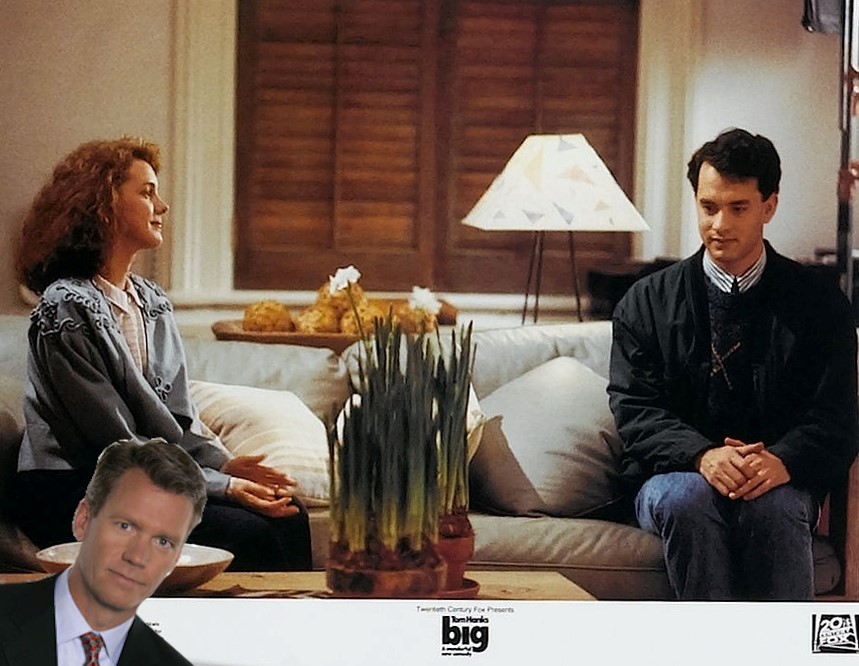
He’s twelve!! He only looks like an adult. If Fred Kreuger’s pre-dream demon escapades were shudder-worthy, then Susan’s are too. And you can’t claim she was unaware — Josh repeatedly tells her that he’s a child. And even if he was a legitimate adult who only “thought” he was a child, that’s still really iffy territory.
Side Note: While typing the above, I started having my Crushing Moment of Self-Doubt that I always get midway through every post I write, so I did a quick Google search to see if anyone else thought of Big as a horror movie and I found this post from 2016. And their answer was a resounding “yes.” Big is a horror movie.
However, while I looked at Big through the eyes of a child, the author of the article above looked at the horror of Big from Josh’s mother’s perspective. I’m not a parent (and never will be), so that didn’t even occur to me! Interesting read.
Anyway. “Wishes gone wrong” has been a horror trope for a very long time. The first instance of wish-induced unintended consequences I can think of is the W.W. Jacobs’ story “The Monkey’s Paw” from 1902. Which, by the way, is a fantastic story and you should read it or listen to it being read (by John Lithgow) if you haven’t already.
So, really, not a whole lot of difference between Zoltar and the Djinn in Wishmaster. Or the music box in Wish Upon.
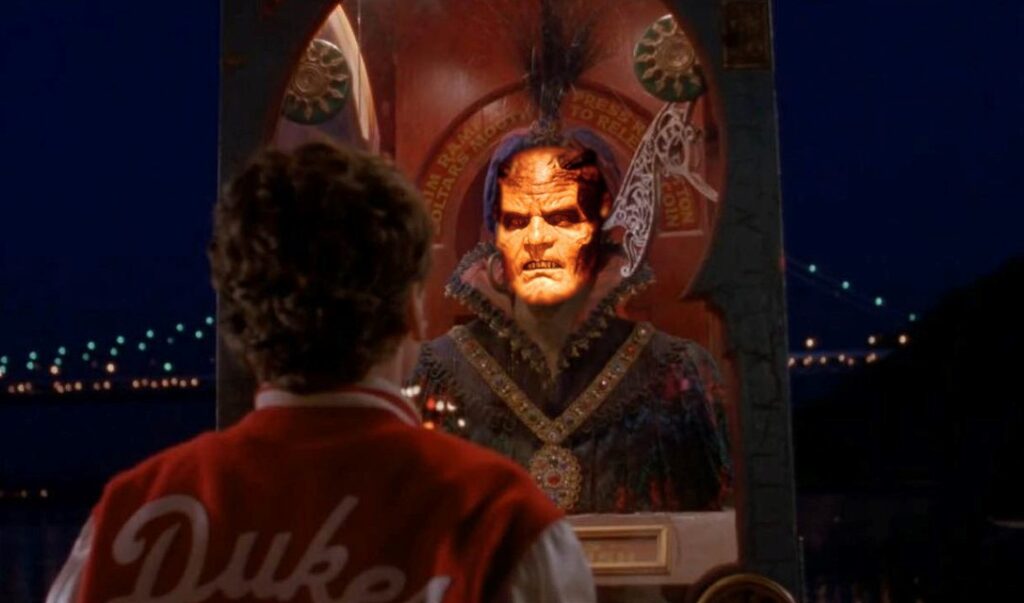
What is different is that Zoltar’s story is set up to be “family-friendly” while Djinn’s is labeled as “horror.”
That’s also why the djinn in Wishmaster is far less fear-inducing than Zoltar.
Horror’s Honesty Sets Comforting Expectations
Pretty much anything can be “horror” or have horror elements. Everything is terrifying.
But, while elements of horror may catch you off guard when your expectation is to feel joy (“This is a heartwarming comedy”), the horror genre is kind and comforting via advanced warnings of the “scary” that’s to come.
Horror is less frightening than any other genre because the expectation of scares is set in advance — giving you a jump start on emotional regulation and stress management.
Where other genres slap you upside the head with terror out of friggin’ nowhere; horror holds your hand like a loving caregiver and says “Okay… are you ready? This might have some scary parts…”
Horror’s very honest. I find the truth comforting. I also like having very clear-cut expectations for what I’m going to deal with at any given time.
The greatest fear is the “fear of the unknown”… which is also the fear you’ll never have to experience with the horror genre. The “fear” is all “known” in advance — when something is labeled as “horror” you know it’s intended to scare you!
I Like Horror Because I Don’t Like Being Scared
As a child, I thought of “horror” as a label given to anything that had something that could be considered scary in it (and, honestly, I still kinda do…). I didn’t know the technicalities (and still kinda don’t) of what makes horror officially horror, but I understood that the label set the expectation for scares — which I always appreciated.
I assumed others would appreciate the “horror” label as well. Which led to incidents like this one:
In elementary school, a friend asked me for a St. Patrick’s Day movie recommendation. I suggested Darby O’Gill and the Little People, describing it as a “horror musical.”
They came back the next day and said it was good but “pretty lame for a ‘horror’ movie.”
The following year, a different friend asked for a recommendation. Once again, I suggested Darby O’Gill and the Little People. This time, I described it as “Disney.”
They came back the next day upset that I hadn’t warned them about the scary stuff! Apparently, their younger sibling had nightmares and was scared to open any doors because they were afraid the banshee was going to be hovering outside.
Fun game: Which photos are from the horror movie Leprechaun and which are from the Disney family adventure film Darby O’Gill and the Little People?
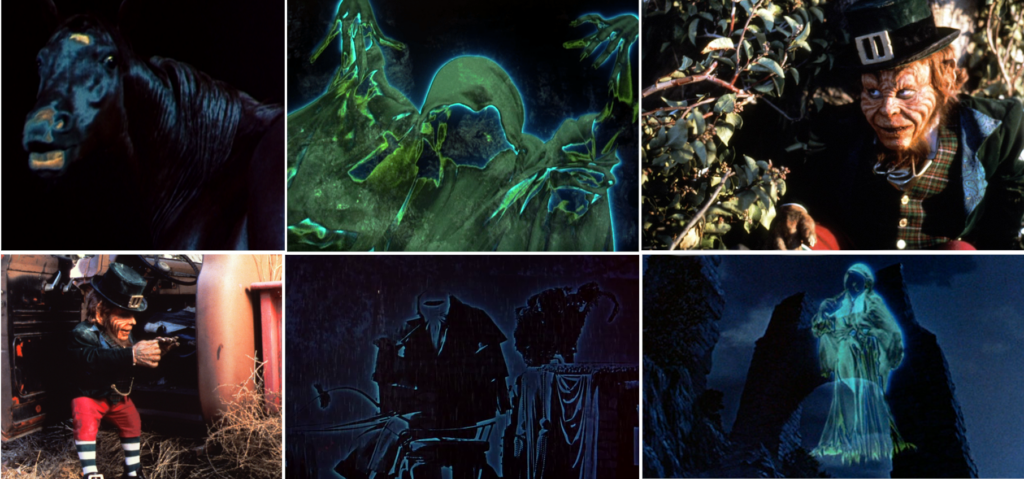
As an adult, I’m (somewhat) better at articulating that a movie/show can be overall benign but have frightening aspects. But, when words fail me, “horror” is still a good shorthand for “Watch out, Friend! This has something that might scare you and I don’t want to accidentally traumatize you or any of your family members!!”
And the horror label is often used very loosely, going back centuries. (It’s not just a “Lauren” thing!). Former HorrorFam.com Podcast guest Diana Prince wrote a beautiful piece on how the Hunchback of Notre Dame got (mis)labeled as a “horror” figure: Check it out!
Fear vs. Anxiety; Anticipation vs. Expectation
Fear is usually grounded in reality, which horror movies are not — no movies are. You’re never in any real danger from any movie and, therefore, never feel actual fear.
Anxiety, on the other hand, can be felt at any time and can be triggered by just about anything. Anxiety doesn’t need a legitimate danger to be set off. Your “fight or flight” stress response can occur from just about any stimulus your brain deems worthy of it.
For me, having expectations set in advance decreases the occurrence, strength, and/or duration of anxiety responses. Horror is an extremely comforting genre — the least frightening of all genres — because I know what to expect.
By managing expectations and going into a movie knowing in advance that it’s going to be “scary” you’re given an edge and extra control. It allows you to feel strong/brave when you may normally be a complete “scaredy-cat.”
Side Note/Rant: Being startled isn’t the same as feeling scared. Neither is recoiling in pain from a sensory issue (ex: your buddy’s not “afraid” of the vacuum cleaner and, frankly, your pet probably isn’t either — the loud noises the machine makes are super painful to highly sensitive ears).
However, anticipation can sometimes lead to anxiety. People who are new to the horror genre are more likely to experience this because they haven’t experienced other horror films before and don’t know what to expect — and they often anticipate something much worse than what’s actually presented.
But, once they’ve watched a few horror films, expectations are set for what “horror” is and the anticipatory fear subsides. Usually. As I’ve discussed before, horror isn’t for everyone (and that’s okay!).
Horror comedies are good “starter” films for those looking to get into the genre. However, I would recommend warning the viewer that the content is “horror”…not necessarily that it’s comedy. Just as expecting to be scared can dull the fear; expecting to laugh makes everything slightly less funny.
What About You?
Do you think horror isn’t scary?
What non-horror movies (or movie scenes) scare YOU?
Share your thoughts in the comments below!

***
Images via MovieStillsDB and CineMaterial with modifications by Lauren Spear.
